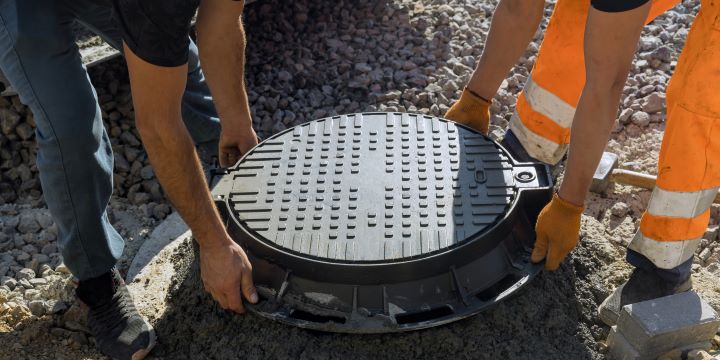Key Takeaways:
- Learn why regular plumbing maintenance is necessary for modern living.
- Discover the economic advantages of routine plumbing inspections and maintenance.
- Gain actionable DIY tips to maintain your home’s plumbing system between professional checks.
- Learn about innovative technologies in plumbing that help homeowners stay proactive.
- Understand the signs that indicate it’s time to call a professional plumber.
Table of Contents:
- Introduction to Plumbing Maintenance
- The Hidden Dangers of Neglected Pipes
- Professional Plumbing Services vs. DIY
- The Economics of Upkeep: Saving Money with Regular Checks
- The Role of Technology in Plumbing Maintenance
- Common Plumbing Issues and How to Avoid Them
- Scheduling Regular Plumbing Maintenance: What You Need to Know
- Finding a Trustworthy Plumbing Service Provider
- Conclusion: The Far-Reaching Benefits of Maintained Pipes
Introduction to Plumbing Maintenance
The intricate network of pipes that make up a home’s plumbing system is fundamental to daily comfort, yet too often, it is invisible to the eye until a major failure occurs. Maintaining this crucial infrastructure requires attention and care to ensure the efficient delivery of clean water and the proper disposal of waste. Regular plumbing maintenance is an important practice that can save homeowners thousands of dollars in preventable repairs and significantly extend the life of their plumbing systems.
The Hidden Dangers of Neglected Pipes
Neglecting plumbing systems can lead to under-the-radar issues, such as minor leaks, which can escalate to major crises or silently ongoing blockages that put constant pressure on pipes. These hidden problems can ultimately result in water damage, encourage mold growth, lead to higher water bills, and even pose serious health concerns. The environmental impact of neglected plumbing is significant, too, as leaks can waste enormous amounts of water, contributing to the depletion of this vital resource.
Professional Plumbing Services vs. DIY
While many basic maintenance tasks are well within the reach of most homeowners, there are certainly cases where professional expertise is needed. Major repairs, replacement of pipes, and dealing with sewer lines are examples of jobs that require the skill and knowledge of a professional plumber in Seattle. Additionally, regular professional inspections can catch issues that even the most astute homeowner might miss, such as the early stages of pipe corrosion or deep clogs that resist simple DIY fixes.
The Economics of Upkeep: Saving Money with Regular Checks
The potential savings certainly outweigh the initial investment in regular plumbing maintenance. Proactive home care, which includes frequent checks and maintenance of plumbing systems, can avert the need for costly, large-scale repairs. The upfront costs of routine inspections and minor maintenance become minimal compared to the expenses associated with emergency plumber visits, not to mention the disruption to one’s home and lifestyle. Homeowners looking to maximize their maintenance savings should also explore the varied recommendations that include plumbing maintenance strategies.
The Role of Technology in Plumbing Maintenance
Integrating technology into home plumbing maintenance has introduced systems that can monitor for leaks, automatically shut off water if leaks are detected, or even alert homeowners to irregular water use patterns through their smartphones. These advances allow for greater control over one’s plumbing system and can provide invaluable information to prevent damage and conserve water use. The utilization of these tools can not only save homeowners on their utility bills but can also help in fights against larger-scale environmental issues through water conservation.
Common Plumbing Issues and How to Avoid Them
Some of the most frequent plumbing problems a homeowner will encounter are easily preventable with a little foresight and maintenance. Routine tasks such as insulating pipes to prevent freezing in winter, regularly checking faucet washers and o-rings for wear, and avoiding the disposal of problematic substances in drains can vastly decrease the likelihood of common issues. It’s also wise to know the location of the main water shut-off valve in case of a plumbing emergency. Taking these preventative steps can protect against the surprise and inconvenience of sudden plumbing failures.
Scheduling Regular Plumbing Maintenance: What You Need to Know
A regular maintenance routine is recommended to keep a plumbing system running smoothly. Skilled plumbers suggest an in-depth annual inspection to assess the system’s overall health and promptly address emerging issues. In addition to these annual checks, it is crucial to perform seasonal inspections and adjustments since climate changes can substantially impact plumbing infrastructure. Preparing for the cold can avert frozen pipes and related damage, while heat-related expansion and contraction in materials can also impact plumbing during warmer months.
Finding a Trustworthy Plumbing Service Provider
Selecting the right plumbing service provider is essential in maintaining a well-functioning home plumbing system. Trustworthy plumbers will possess the necessary certifications, insurance, and a solid reputation for quality service and reliability. Personal referrals and trusted online review platforms are helpful resources in evaluating potential service providers. Making an informed decision can mean between thorough, invested care for your plumbing and sub-par, potentially costly service.
Conclusion: The Far-Reaching Benefits of Maintained Pipes
A robust and well-maintained plumbing system is the backbone of a healthy, functional home. Proactive maintenance maximizes the system’s efficiency and longevity and helps avoid the disruption and expense of plumbing emergencies. Regular checks and prompt repairs provide significant peace of mind and ensure the clean, reliable flow of water that modern life necessitates. With the right balance of DIY maintenance and the insights and support of a skilled plumber, homeowners can rest assured that their plumbing systems will remain in top condition for years. Furthermore, prioritizing pipe maintenance contributes to environmental sustainability by reducing water waste and minimizing the need for resource-intensive repairs or replacements. Investing in preventative measures, such as drain cleaning and pipe inspections, can also safeguard against potential health hazards associated with mold, mildew, and water contamination. Ultimately, maintaining pipes enhances property value and fosters a safer and more comfortable living environment for occupants, reinforcing the importance of proactive plumbing care in homeownership.




